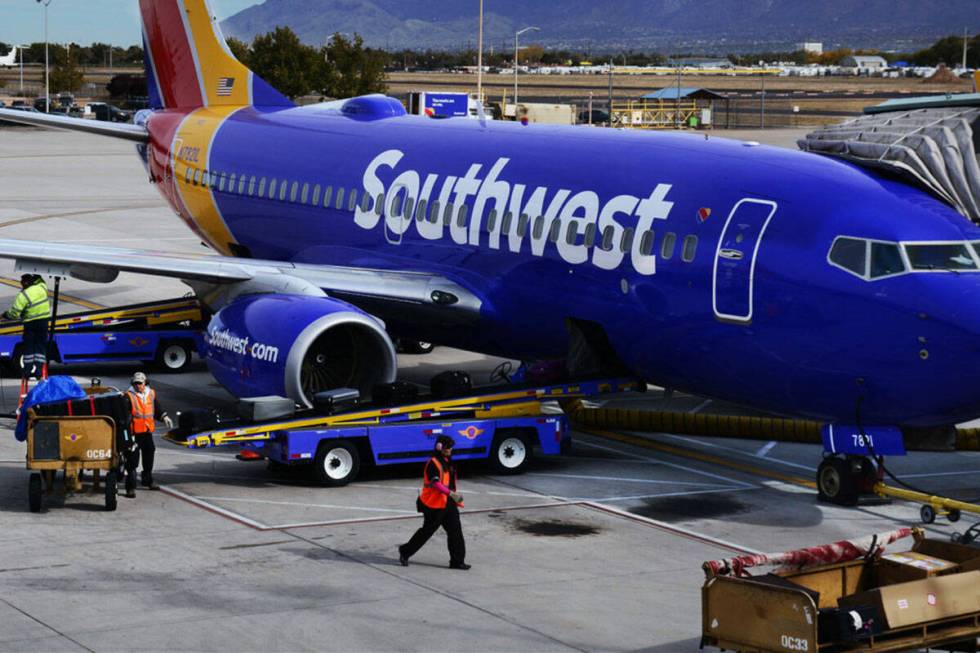Southwest Airlines plans drastic boarding and seating changes

Southwest Airlines has an identity. It’s a disruptor in the airline space because it notably breaks industry norms.
The company prides itself on not charging baggage fees and not offering first- or business-class seats. It also has a semi-democratic boarding process in which nobody has an assigned seat.
Instead, passengers pick seats as they board. There are paid and loyalty-program ways to get earlier boarding spots, but in a broad sense the airline has no assigned seats and many fewer fees than its rivals.
The model has worked for most of the airline’s history, but it has faltered recently. Southwest lost $231 million in the first quarter and has struggled to fill its seats.
That has led the activist investor Elliott Capital Management to take a $2 billion stake in the airline. Southwest has adopted a poison pill, which dilutes the stake of any shareholder whose stake climbs over 12.5 percent without approval by the board.
Even with that provision in place, it’s fair to say the company is feeling the pressure. Chief Executive Bob Jordan, who has faced calls for his job, made clear during the airline’s first-quarter-earnings call that LUV is looking at making changes.
Southwest is considering boarding changes and perhaps charging for baggage in some situations.
Southwest Airlines considers major changes
Jordan said the airline is mulling significant changes to its seating policies.
“We are considering more transformational options and follow-on initiatives. That includes work previously underway to study customer preference around seating and our cabin,” he said.
Jordan made clear that everything was on the table, while the airline wants to maintain its standing with customers.
“It’s been several years since we last studied this in depth, and customer preferences and expectations change over time,” he added. “We are also studying the operational and financial benefits of any potential change.”
Jordan tried to both embrace and play down the potential changes.
“We remain committed to our industry best customer-friendly policies, but we are also committed to understanding and meeting customer expectations,” he said. “We have transformed before, adding things like WiFi, larger bins, and in-seat power, and we will continue to adapt as needed.”
These are the changes Southwest may make
Southwest has been quiet about which specific changes it’s considering, but View From the Wing’s Gary Leff has some insight into what might happen.
Nothing has been formally decided, but clearly the airline is trying to maintain its no-fee identity while also, well, adding some fees.
The airline, Leff shared, is considering assigning seats, offering premium extra-legroom seats, and offering a no-frills fare that does not include checked bags. That latter idea looks a lot like the basic-economy fares offered on most major airlines.
“Love Cabin would be extra-legroom seats at the front of the aircraft,” he wrote.
That could involve taking seats out of the planes or keeping the number of seats the same and making a different change.
“Currently Southwest offers more legroom than standard economy compared to Delta, American, or United,” Leff wrote. ”They do not advertise their legroom advantage versus competitors. Regular coach seating could get tighter.”
The airline is also considering allowing passengers to pay to have nobody sitting in the middle seat. That would require assigned seating in at least some rows. And the product can be sold twice since the passenger on the aisle would have no way to know whether the window passenger had already paid for it (and vice versa).
Southwest’s biggest potential change — a basic-economy fare that might or might not include checked bags — would also be the largest risk.
“I’ve heard several reports that the airline is working on a replacement for their cheapest Wanna Get Away fare,” Leff wrote.
“Presumably, these passengers would board last and have last choice of seats. … Two free checked bags are so baked into Southwest’s value proposition that this could remain, although I’ve heard it both ways.”